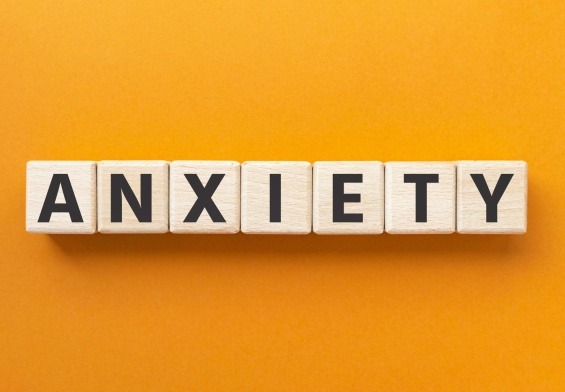Stress sometimes overtakes our lives, we are a society on the go and something or someone always needs our attention. Sometimes we just need to have a few moments to ourselves away from it all to unwind. First, it is good to recognize stress and realize you need to take a “time out” and be by yourself. Now, you need to know how to combat stress.
Everyone has different stress triggers. For the woman in the house, it may be taking care of the children and house while her husband is at work, though, that scenario is fading fast as most families have a two-income household. For some women managing both the domestic and work duties prove to be a little too much. Early mornings are frenetic getting kids fed, dressed and out the door. For some commuters, the traffic rattles them and sets them on edge. A CEO may be stressed out by responsibilities, while subordinates are stressed and anxious because the big boss expresses angst or anger or… they feel they’ll be the CEO’s next target. For the worker bee, often the stress is an everyday torment; some people take it in stride and leave the stress behind at the workplace door, while others carry it home with them. What kind of person are you – what are your stress triggers and how do you resolve them?
Deal with stress
You might think that the concept of biological stress has always been around. People were always stressed out, but doctors failed to identify or document it until the late 1950s when an endocrinologist named Hans Selye pinpointed it. His discoveries led to new research that has helped millions combat stress. Some suggested ways to relieve stress are:
Relieve the stress with music – If you are feeling overwhelmed by a stressful situation, take a little break and listen to some relaxing classical music. Classical music may stray from your usual listening genre, but playing calm music has a positive effect on the brain and body, which in turn, will lower your blood pressure and reduce cortisol, a hormone linked to stress. If classical music is really not your shtick, try switching over to ocean or nature sounds. You will get the same relaxing effect.
Reach out to a friend – Take a time out and call a friend to discuss what is on your mind. As you know, psychologists recommend spending good quality time with friends and family, that time is important to any healthy lifestyle. Those people who are close to you are the persons to each out to now during stressful times. Just a few minutes on the phone with a reassuring voice on the other end is like a pat on the hand saying “there, there”.
Talk yourself through the situation – Duck away from the maddening crowd if at work, or seek a quiet place if at home and talk calmly to yourself. A friend or family member is not always available, so often you need to improvise. Sometimes calling a friend is not an option, so, if this is the case, talking calmly to yourself can be the next best thing. Be a good listener and weigh the reason(s) why you are stressed out, and try to rationalize how to handle that situation and the next steps.

Have a good laugh – No matter how dire the circumstance, try to laugh it off – at least momentarily. Laughter releases endorphins that improve the mood and decrease the levels of the stress-causing hormones cortisol and adrenaline. Laughing actually tricks your nervous system into making you happy. Think of a funny movie, or a pleasant thought.
Exercise – Even kicking off your shoes at your desk, rolling your head and massaging your neck will do wonders in a stressful time. Take a short stroll around the office for a few minutes, or simply do a leisurely, cat-like stretch for a few minutes. The short exercise break, albeit small, will get your blood moving, release endorphins and can improve your mood. It is important to get your blood moving as it releases endorphins and can improve your mood almost instantaneously.
Sleep better – Stress depletes your energy and takes a toll on your body. Stress leaves its mark differently on people – for some, they can’t sleep, and for others, they want to stay in bed and forget about the outside world. Lack of sleep due to stress (or any other reason for that matter) leads to stress and any little item will “set you off”. While doctors recommend sleeping at least seven to eight hours, this is not doable for most people, except on the weekends, then too much sleep may throw your whole sleep cycle off.
Limit caffeine – Switch to green tea because a tall cup of coffee or an energy drink will cause a short-term spike in blood pressure, thus causing your hypothalamic-pituitary-adrenal axis to go into overdrive. Green tea has half the caffeine of coffee, and contains healthy antioxidants including the amino acid theanine which has a calming and soothing effect on the nervous system.
Eat properly – Stress levels and proper diet go hand in hand. When we are stressed at work, we don’t reach for the proper foods to get us through the crisis. If you can plan ahead by bringing nutritious snacks from home, you can avoid the trip to the vending machine where you’ll load up on a lot of sugary or fat-laden snacks. Working on a stressful project at work that needs your focus and attention? Bring in some crunchy treats that are good for you – some baby carrots or broccoli and a little ranch dressing, or celery spread with a cream cheese or peanut butter. The lift will do you good and you won’t be indulging in caloric, non-nutritional snacks. Pack a tuna salad sandwich because it is brain food and will help you just plow through that big project in record time.
Say no – Whether it’s your family pressing you on to host a holiday dinner, or your boss asking you to take on more projects and more responsibility, you need to learn to say “no” at some point. Feel free not to RSVP your attendance to events that you term an obligation and learn to say “yes” to the events that give you pleasure.
The takeaway to avoid stress is take care of yourself and the most important daily health tip is to remember to have substantial “me” time as much as possible.




